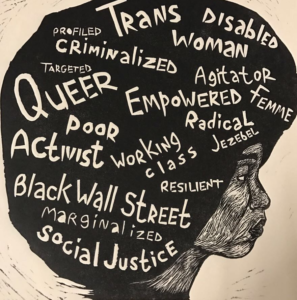UN Women has sent out an email survey to develop an organizational policy position on sex work. Sex worker lead organizations and allies have critiqued this process. Ruth Morgan Thomas of the Network of Sex Work Projects has said that this process is “not an accountable, transparent way to connect with sex workers” because it uses complex bureaucratic UN language and because the process is occurring on an extremely short time frame (UN Women’s consultation ends October 16, 2016 extended to Oct 31, 2016).
BPPP received an email from UN Women about the consultation as a follow up to a meeting we had with the agency earlier this year. We agree with our colleagues that the process is extremely difficult to access. Further, confusion within UN Women regarding their own ability to hear the voices of sex workers calls the consultation process into question. Purna Sen, the Director of UN Women’s Policy Division who is leading the consultation process and the development of the policy, has written that prostitution is a form of violence against women and was a keynote speaker in 2007 with Catherine MacKinnon and Sheila Jeffreys.
What can sex worker lead organizations and their allies do? Here are some suggestions.
- sign this Call for UN Women to Meaningfully Consult Sex Workers as they Develop Policy on Sex Work and/or publicize the petition on social media and in your networks.
- develop and share our own organizational stances on UN Women’s policy process and what we want. We can send our own letters of concern to the Phumzile Mlambo-Ngcuka (the Executive Director of UN Women), comment in the media, post about the policy process, and make our own demands clearly about how to have a better process, up to and including saying that UN Women should not proceed with a policy process at all at this time.
- engage with UN Women email consultation process critically and on our own terms, and support sex worker lead organizations to engage in the process should they wish. UN Women must acknowledge our responses. The NSWP has sent in a response which is a useful example of how we may engage with this process.
How to send a response to UN Women’s consultation: UN Women is asking for “people and groups” to send responses to the following three questions to consultation@unwomen.org by 16 October 2016 with the subject title “Written submission.” According to the UN Women, “these questions relate to the current framing of the UN’s work, around Agenda 2030 and the Sustainable Development Goals.” However, people do not have to respond to the questions as UN Women has framed them, and can simply write in their own terms about the ways in which sex workers’ human rights should be actualized. According to UN Women emails should include “your name” and “organization and title, if relevant.” Please note that UN Women will post all responses online, but, “if you do not want your submission to be posted for reasons of confidentiality or for any other reason, please note this on your response.”
1) The 2030 Agenda commits to universality, human rights and leaving nobody behind. How do you interpret these principles in relation to sex work/trade or prostitution?
2) The Sustainable Development Goals (SDGs) set out to achieve gender equality and to empower all women and girls. The SDGs also include several targets pertinent to women’s empowerment, such as: a) reproductive rights; b) women’s ownership of land and assets; c) building peaceful and inclusive societies; d) ending the trafficking of women; e) eliminating violence against women. How do you suggest that policies on sex work/trade/prostitution can promote such targets and objectives?
3) The sex trade is gendered. How best can we protect women in the trade from harm, violence, stigma and discrimination?
UN Women is asking that responses to the above questions be kept to a maximum of 1,500 words in total.
 Awareness of the negative impact of arresting and incarcerating people for engaging in sex work is growing nationwide in the United States. This webinar discusses the place of diversion programs in efforts to build health and rights for sex workers and communities routinely targeted by anti-prostitution law enforcement. Speakers include Monica Jones (CEO of The Outlaw Project), Jules Kim (CEO of Scarlet Alliance, Australia) and other experts in the field of sex worker rights. This webinar is convened by the Outlaw Project and BPPP with the assistance of NJRUA on social media.
Awareness of the negative impact of arresting and incarcerating people for engaging in sex work is growing nationwide in the United States. This webinar discusses the place of diversion programs in efforts to build health and rights for sex workers and communities routinely targeted by anti-prostitution law enforcement. Speakers include Monica Jones (CEO of The Outlaw Project), Jules Kim (CEO of Scarlet Alliance, Australia) and other experts in the field of sex worker rights. This webinar is convened by the Outlaw Project and BPPP with the assistance of NJRUA on social media.